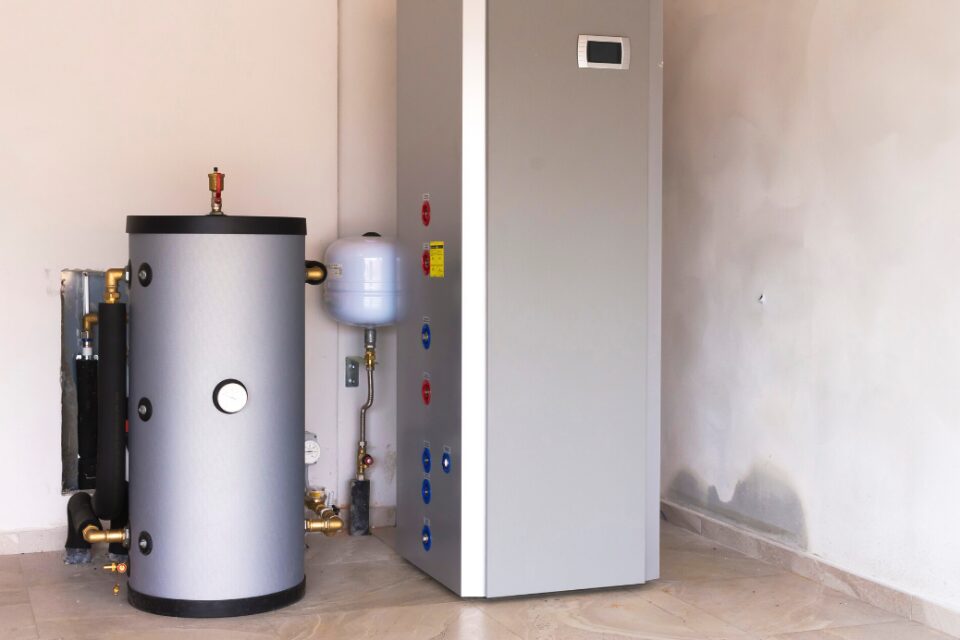A thermal store is like a buffer vessel and a hot water cylinder all in one. Imagine a hot water cylinder but with loads of connections on the side. It’s a big bucket filled with the water. The water inside the store is not the water you bathe in – it’s the water that goes through the boiler. It’s just like a buffer but it also has a coil running through it to make instant hot water for your taps. Cold water enters the coil and is heated instantly by the water in the bucket, and it leaves as hot water which goes to your taps.
The beauty of a store is you can use wood burners, solar panels boilers, etc. all connected together to heat the house and hot water. Heating consultants like me call this integrating the technologies together. The only problem is stores are horrible when you use them on heat pumps. Let me explain.
The thermal store needs to be kept very hot so you can make instant hot water as described above. Typically they are kept between 60- 70C all the time (even in summer) as you never know when the homeowner will want a shower. Boilers are brilliant at this, so a store looks like a good idea.
But in heat pump land we want to run the water to the radiators and underfloor heating at a lower temperature to make the run cost low and run at a high temperature to heat the hot water cylinder. Running a heat pump all year round at high temperatures is never going to be efficient or cheap.
Most people want access to hot water pretty much 24/7. We want to go to the hot tap, turn it on, and hot water comes out. If your hot water is provided by a thermal store that means you have to keep the whole store hot all the time and it has to be the same temperature all year round. Why is this so bad, after all we keep the hot water cylinder hot all year?
In a store, the hot water and the heating all come from the same place, but typically in a UK house you use 5-10 times as much energy to heat the house as you do the hot water so keeping the heating super hot just so you can have a hot shower is wasteful.
Heat pumps are most efficient when running at low temperatures – the hotter the water they supply the more it costs, it’s just the way it is and no one can do anything about it. So to get the most efficient operation the key is to run the heat pump at lower temperatures in heating mode and high temperatures in hot water mode.
In a store you can’t weather compensate. It has to be as hot as possible all the time so it can provide hot water. The hotter the water in the store the more water you can have. The worst bit about stores is you just don’t get much hot water unless it’s very, very hot.
For example, if we hold a 300L store at 55C, you only get 80 litres of water out of it before it drops to 45C, then the store temperature is too cold and the water coming out the taps starts to drop in temperature. So you have a massive tank but not much hot water.
So in conclusion, don’t use thermal stores on a heat pump. If you have one, either rip it out and sell it on eBay or leave it just in the heating part of the circuit to combine other heating source to the heat pump and put in a new heat pump cylinder for your hot water.
I get asked about stores at least ever couple of weeks: “Can I keep my thermal store?” The answer is a resounding no!



Having recently fitted a Grant ASAP I was concerned at your comments regarding the heat store.
Ours has a grant cylinder incorporating a buffer tank in the base and I wondered what your thoughts were on this.
Regards
David